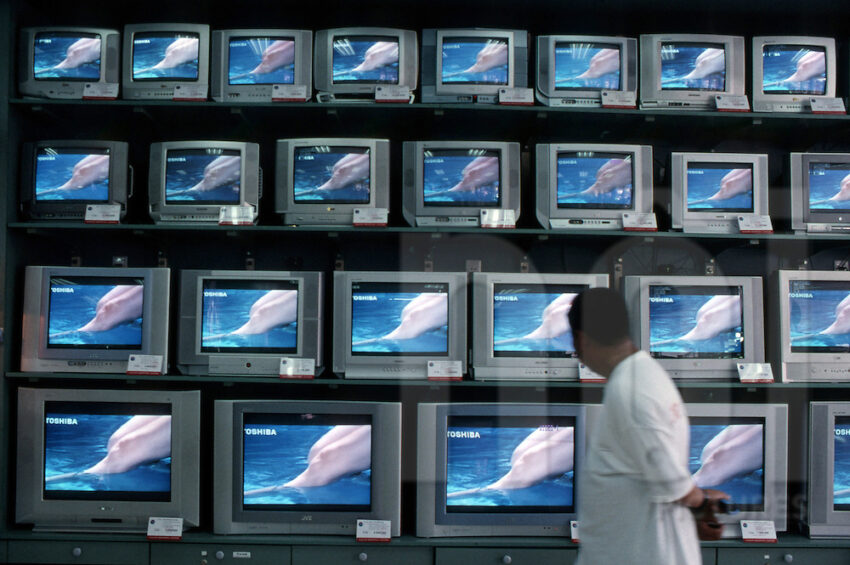By Humyra Karim ’26
Staff Writer
Like clockwork, every few media cycles, another classic story or character is remade as slightly more progressive. And as usual so-called “traditionalist” Twitter trolls emerge ready to spew their repetitive vitriol in the name of source authenticity. This month it was Scooby-Doo, last month it was The Little Mermaid, and before that, it was the Game of Thrones prequel The House of the Dragon.
A racist onslaught that is repetitive, endless, and draining.
In response, as always, come the outpours of support, Twitter trends, and promises to buy tickets and stream in support of these movies. While I think that seeing people and stories that marginalized people can identify with within the media and Hollywood is important, I’m nonetheless still irked at how we discuss representation. No matter how many “progressive” projects we support discourse only cycles and nothing changes. Racists get mad, POC are exposed to damaging amounts of online racism, we promise to support a movie, commercially it succeeds or fails, and we attribute the cause to either the “power of representation” or bigotry. Rinse and repeat.
What I take issue with, which has become a key component of this exchange, is the way “representation” is now being levied against audiences to force them to commercially support big studio projects. In the case of The Little Mermaid, a common rallying cry in response to the racist backlash on the internet is that people of color are obligated to use their consumer power and buy tickets to support the movie. An idea that operates under the fear of production studios never making a Black woman-led motion picture again. This approach to consuming media puts the onus on people of color to give their money to billion-dollar corporations in the hope of continued representation instead of treating representation as the norm. It’s an unfair responsibility to put on marginalized people, and such a narrow premise precludes the hope of consuming diverse media because it is in itself good. It exasperates me that instead of studios showing a continued interest to support people of color, on and off screen, we have reached a point where we view our continued representation as dependent on which projects we choose to financially support. Disney, Universal, Netflix, and whatever media giant of tomorrow do not need our money to represent us. Instead, they utilize our reactionary anger to racist outbursts and force us to open our pockets under the pretense that our representation is conditional to their financial gain.
Movies and shows fail often. Movies and shows are often bad. Yet only in the case of movies and shows that have queer people, actors of color, or women centerstage do we stop to think “did this fail because it was too progressive?” Or “Is a movie led by [insert marginalized identity] financially viable?”
As marginalized people, we deserve representation in media. From small-scale productions and indie movies to big studio blockbusters. We also need to reframe how we discuss the people making movies and the power that they hold. They are not passive figures who create films based solely on market trends. They have power. And their choice to present diverse media as contingent is intentional and we should stop pretending that buying in is empowering.
Our idea of representation as a force for positive change also deserves some scrutiny. While having increased media exposure is never to our society’s detriment, treating progressive and inclusive representation as a battering ram against systems of oppression is superficial. Having people of color on the screen won’t magically cause anti-racism to trickle down to the masses, nor is it productive to pretend it will. For example, amid National Hispanic Heritage Month, streaming services like Hulu and HBO proudly advertised and boosted their shows, movies, and specials with Latiné casts or with specific attention to Hispanic cultures. Meanwhile, a Government Accountability Office report released September 29 found Hispanic workers were significantly underrepresented in media industries and had seen little growth when compared to other industries. The way corporations try to sell us representation is an insubstantial gain against the backdrop of inequity and injustice amidst modern labor markets. And as consumers, we should not be satisfied with media conglomerates pretending representation is the limit of their progressivism and instead focus on real structural change.
As we fight within our communities about “what is good representation” and “who deserves representation” I worry about the scope of these discussions. The lack of media representation for people of color and queer people is symptomatic of the greater issues of our society. To only care about the visibility of these groups on screen can be to forget about their reality off-screen. To buy into representation in the media as the end all be all is to use consumerism as a solution to systemic issues which themselves were created by capitalism. With better material realities, to begin with, will come better representation, that is causal, the inverse is just distraction.



